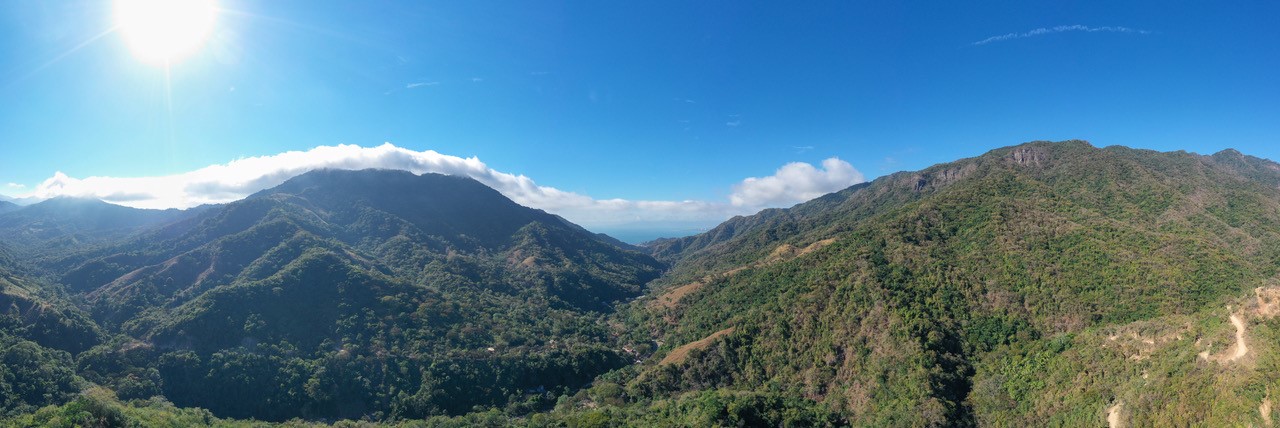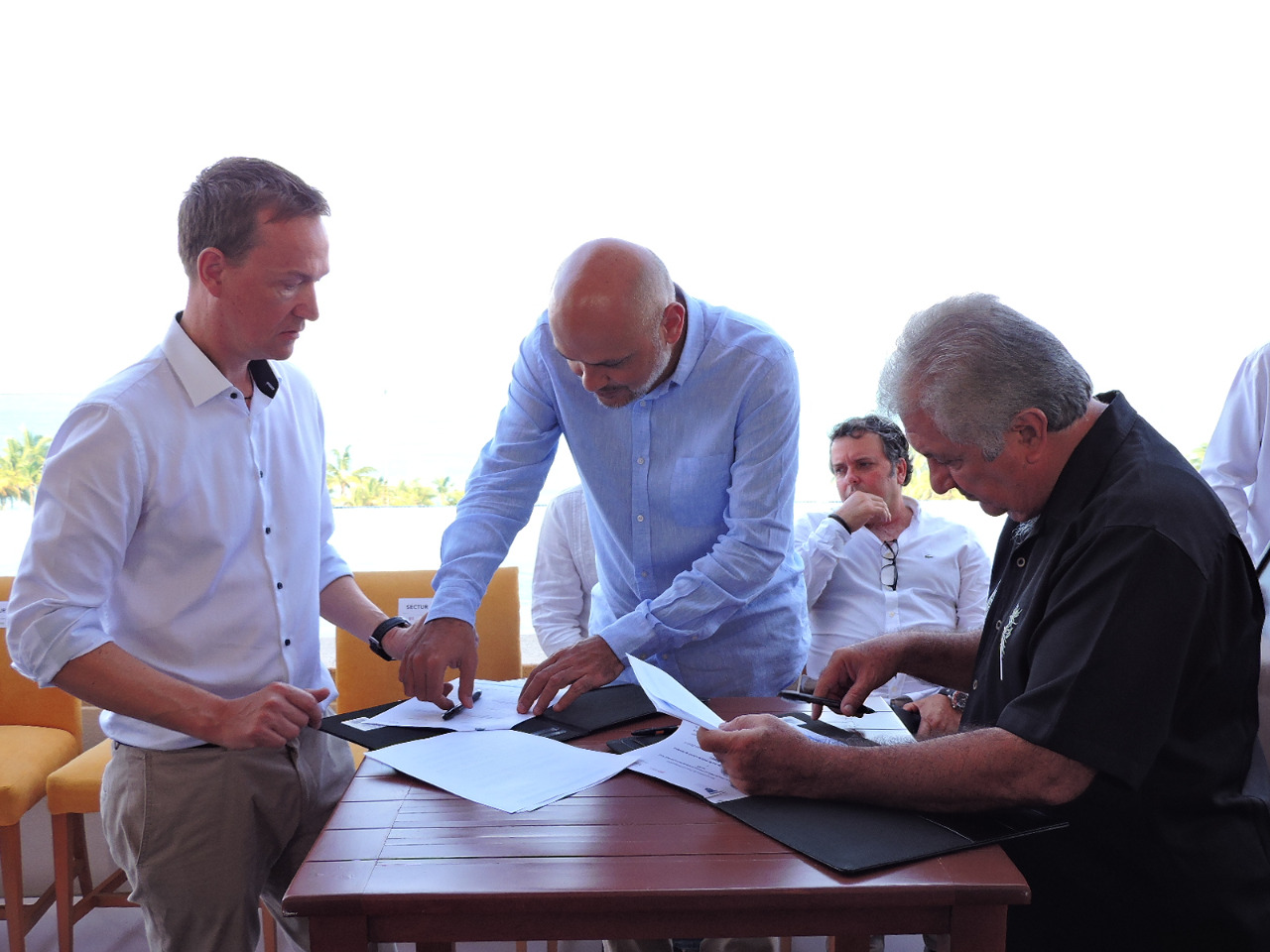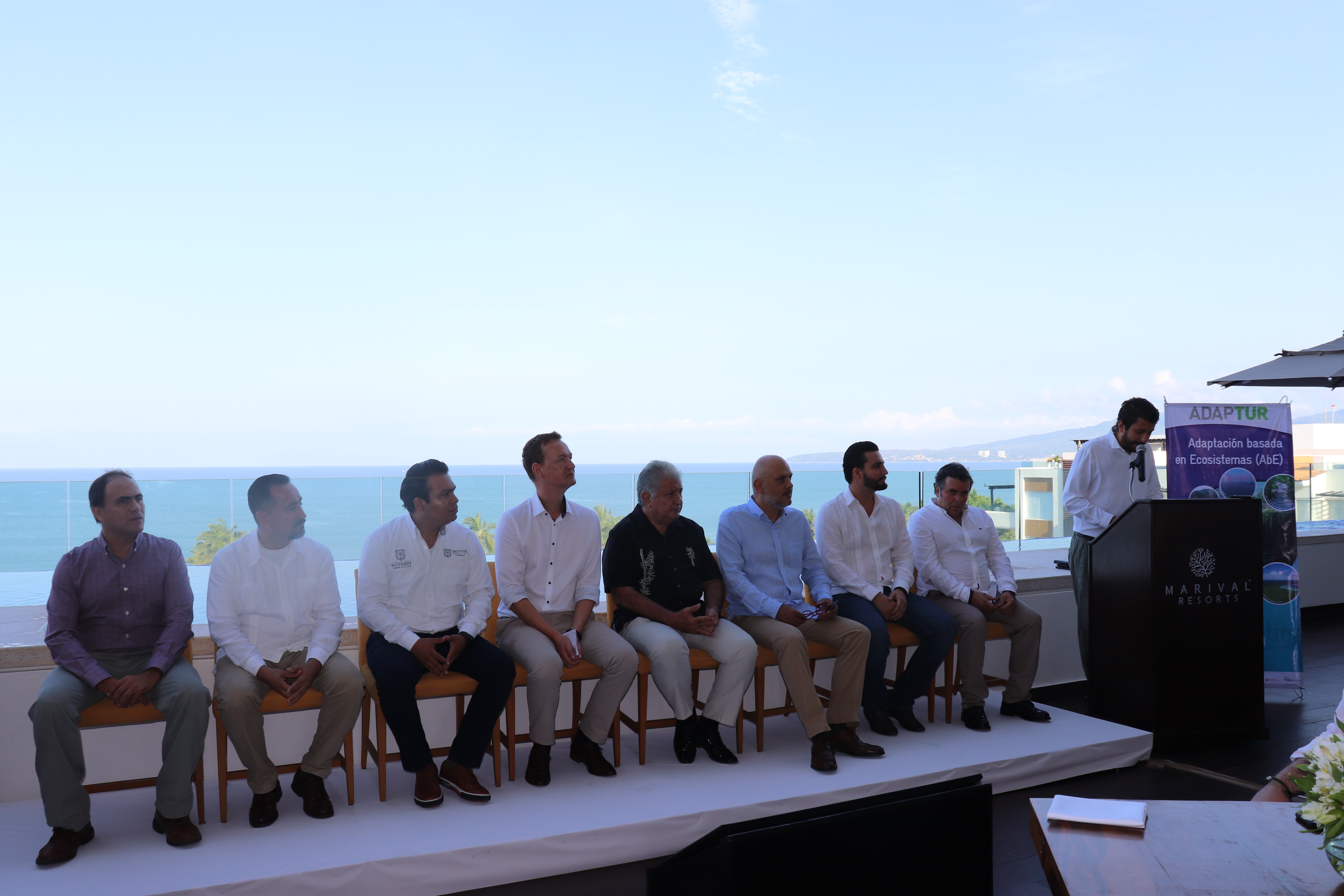If 10% of the hotels in Mexico reduced their energy consumption by 30%, the CO2 mitigation potential that could be achieved would be 287 thousand tons of CO2 eq. per year. This and other data can be found in the Guide to Energy Efficiency in the Design, Construction and Operation of Hotels in Warm Climates, which illustrates energy efficiency measures, cost-benefit data, and information on the importance of promoting energy efficiency in the hotel sector, as well as business models and financing options.
The guide was produced within the framework of the PEEB and FELICITY global programs of the Deutsche Gesellschaft für Internationale Zusammenarbeit (GIZ) GmbH in conjunction with the Mexican Ministry of Environment and Natural Resources.
It is possible to achieve a 30% reduction in energy in a beach hotel, with a return on investment of 2.5 years, using passive and active energy efficiency measures. The Guide to Energy Efficiency in the Design, Construction and Operation of Hotels in Warm Climates uses practical examples to illustrate the energy efficiency and renewable energy measures that can be used, with even zero-energy hotels possible.
This guide was presented during the virtual forum “Experiences, Models and Alternatives of Energy Efficiency in Accommodation Establishments”, which served as a space to publicize the economic and environmental benefits of implementing the environmental sector’s energy optimization model for lodging establishments.
Representatives of the Ministry of Environment (SEMARNAT), Ministry of Tourism (SECTUR), National Commission for the Efficient Use of Energy (CONUEE), GIZ México, Global ABC, EDGE, Green Key, Grupo Posadas and Hoteles Misión participated in the Forum.
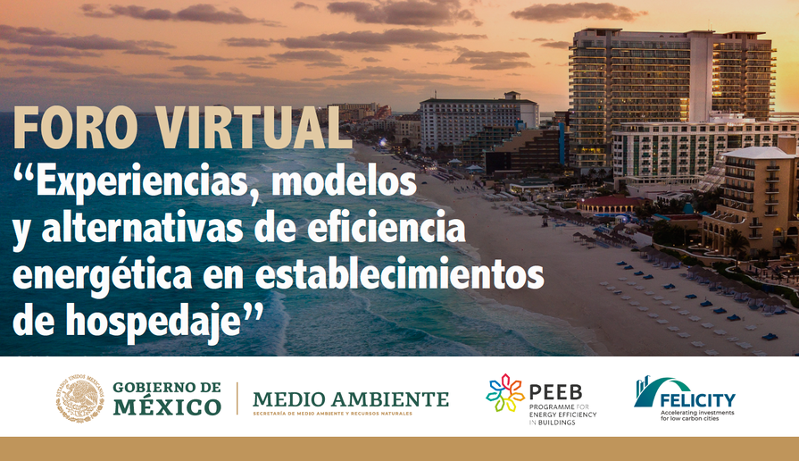
The event was broadcast on digital platforms such as Cisco Webex and Facebook, reaching more than 500 attendees in total and more than 15,000 reproductions on the social network.
The guide was developed within the framework of two global programs: the Programme for Energy Efficiency in Buildings (PEEB), which combines the technical knowledge of GIZ with that of the Agence de l’Environnement et de la Maitrise de l’Energie (ADEME) and the Financing Energy for Low-carbon Investment – Cities Advisory Facility (FELICITY) financed in collaboration with the European Investment Bank (EIB). This collaboration is an example for both projects supported by the International Climate Initiative (IKI) of Germany’s Federal Ministry for the Environment, Nature Conservation and Nuclear Safety (BMU) and implemented by the Deutsche Gesellschaft für Internationale Zusammenarbeit (GIZ) GmbH.
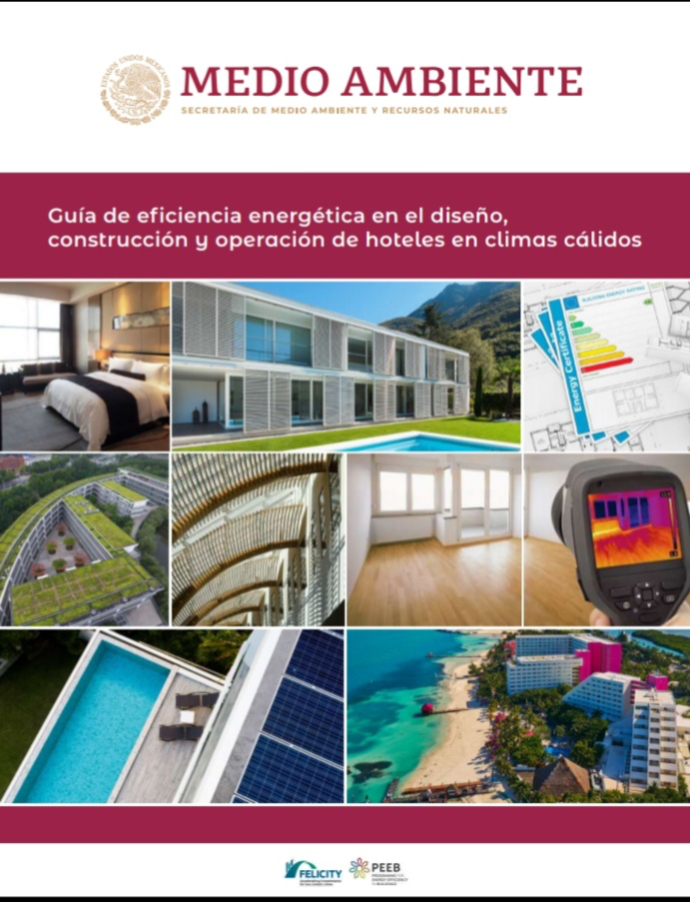
The guide is available for download on the SEMARNAT page: https://www.gob.mx/cms/uploads/attachment/file/565858/Gu_a_de_eficiencia_energetica_hoteles__comprimida_.pdf


